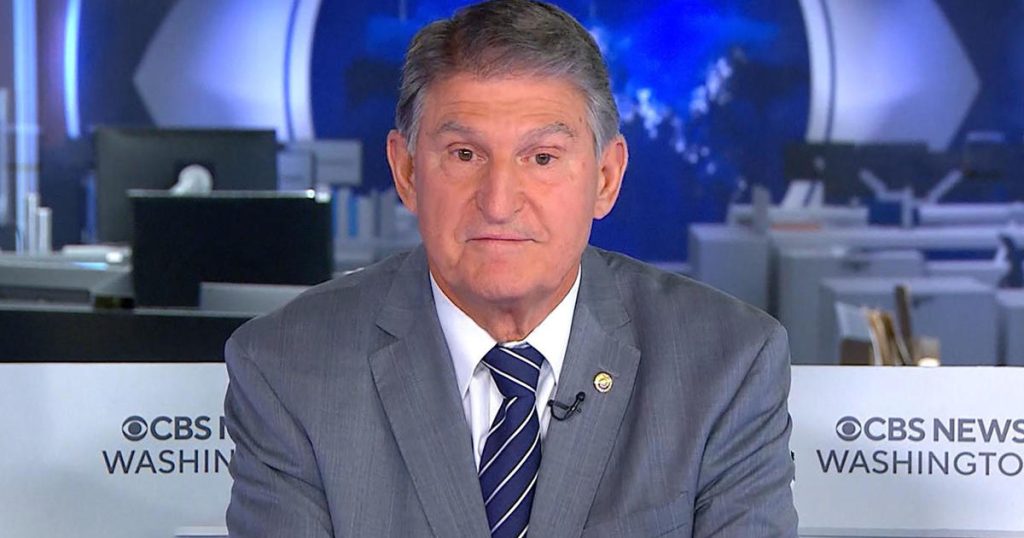West Virginia Sen. Joe Manchin has announced that he will not be running for president for the Democratic presidential nomination. Manchin, who was previously a Democrat but is now an Independent, made this decision after President Biden dropped out of the race. Despite not running himself, Manchin did express support for some type of contested primary, as Vice President Kamala Harris has emerged as the frontrunner in the race.
As a former Democrat turned Independent, Manchin’s decision not to run for president comes at a time when the Democratic party is seeking to solidify its nominee for the upcoming presidential election. With President Biden out of the race, there is increasing speculation about who will emerge as the frontrunner and ultimately secure the nomination. Manchin’s advocacy for a contested primary reflects a desire for a competitive and democratic process to determine the party’s candidate for president.
Vice President Kamala Harris has become a key figure in the Democratic presidential race, emerging as a frontrunner in the absence of President Biden. Manchin’s decision not to run for president and his support for a contested primary suggest that he sees Harris as a significant contender in the race. As the party seeks to unite behind a candidate to take on the Republican nominee in the general election, Harris’s position in the primary race will be closely watched by both supporters and challengers within the party.
While Manchin has opted not to run for president himself, his decision to advocate for a contested primary indicates a commitment to ensuring a fair and competitive process within the Democratic party. By supporting a primary that involves multiple candidates and allows for a range of voices to be heard, Manchin is signaling his belief in the importance of a robust and inclusive democratic process. As the party works to select its nominee for the presidential election, Manchin’s perspective on the value of a contested primary will likely influence discussions within the party.
The upcoming presidential election will be a critical moment for the Democratic party as it seeks to regain control of the White House. With President Biden’s decision not to run for reelection, the party faces the task of selecting a candidate who can effectively challenge the Republican nominee in the general election. Manchin’s decision not to run for president and his advocacy for a contested primary reflect a broader effort within the party to engage in a democratic and competitive process to determine its nominee for the presidency.
In the midst of a competitive and high-stakes election season, Manchin’s decision not to run for president and his support for a contested primary underscore the importance of a fair and inclusive process within the Democratic party. As the party grapples with internal debates and challenges in selecting its nominee for the upcoming presidential election, Manchin’s perspective on the value of a contested primary will likely shape discussions and decisions within the party. With Vice President Kamala Harris emerging as a frontrunner in the race, the Democratic party faces critical decisions about its path forward in selecting a candidate to take on the Republican nominee in the ultimate showdown for the White House.


